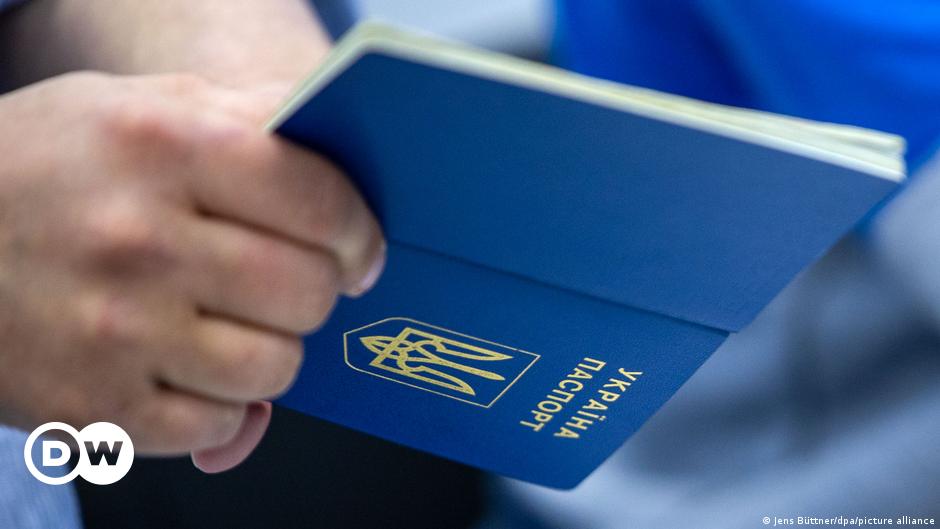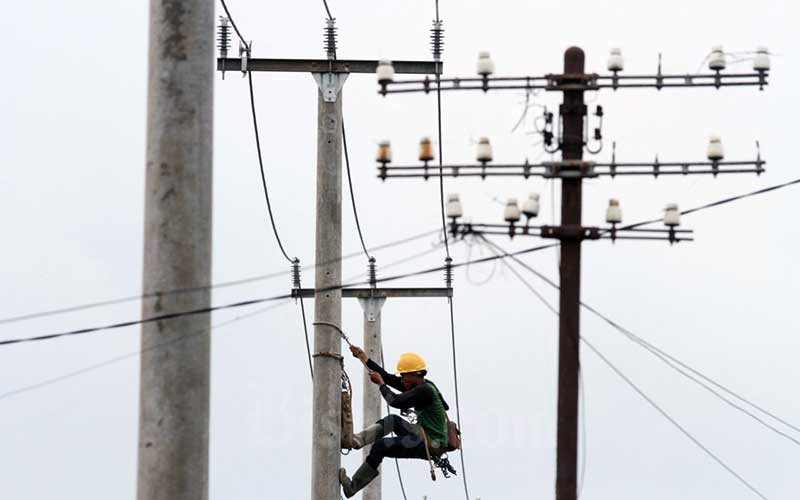[ad_1]
“Good thing that I got my passport last year in Cologne and don’t have to go back to the consulate,” said Oleg from Kyiv, who didn’t give his last name. Today, he lives with his wife and three children in Germany.
That was his reaction to a statement from Ukrainian Foreign Minister Dmytro Kuleba announcing that male citizens of military age who currently live outside Ukraine will no longer have access to full consular services. The measure is primarily aimed at individuals who have not registered with the military.
“Living abroad does not relieve a citizen of his or her duties to their homeland,” Kuleba wrote Tuesday on the social media platform X, formerly Twitter, adding that he called for the measures to guarantee, “fair treatment of men of mobilization age in Ukraine and abroad.”
Ukraine short on weapons as Russia steps up attacks
Since then, Kyiv has stopped issuing passports to men between the ages of 18 and 60 who live abroad. This means Ukrainian men of military age can only obtain a passport in Ukraine. The only exception: personal identity documents may be issued for the purpose of returning to Ukraine.
Legal action expected
The measure, which is related to a recently passed law to increase mobilization, aims to force Ukrainian men to return to their home country. The law is scheduled to come into force on May 18.
The new regulations also require male Ukrainians living abroad to register with the military.
“It’s unclear how this is supposed to proceed in a foreign country and which papers will need to be presented,” said Kyiv-based lawyer Hanna Ishchenko, adding that the government has yet to provide these details. The only thing that is clear, she explained, is that the law applies across the board to all male citizens, including those who left Ukraine in 2022 following Russia’s invasion of the country — and those who have been living abroad since birth.
Ukrainian women prepare for combat roles
The regulations regarding military registration stipulate that male Ukrainian citizens abroad may only have access to consular services once their military registration status has been established. If they have failed to register with the military, then they will face a fine of 510 to 850 hryvnia (c. €12-20, $13-21) in addition to having their consular services denied; a repeat violation will cost up to 1,700 hryvnia (c. €40, $43).
Ishchenko believes a legal case will be filed against the authorities. She explained that the courts will have to clarify whether the authorities’ decisions uphold the principle of equality of all citizens before the law. “The consequences for citizens must be reconcilable with the goals the regulations aim to achieve,” she said. In her opinion, the government measures are not proportional to the situation, even given the war.
Oleksandr Pavlichenko of the Ukrainian Helsinki Human Rights Union went so far as to describe it as discrimination. He fears that in the future, Ukrainian officials could deny help to affected individuals who may find themselves in an emergency. He also believes people may apply for passports in other countries, either by obtaining refugee status or through other methods, in order to extract themselves from their “uncomfortable” Ukrainian citizenship.
Pavlichenko also expects Ukrainians to take legal action against the new regulations, citing the European Convention on Human Rights.
Hoping for protection and help from Germany
Oleg said he does not want to register with the military. He fears having to serve in the war, even though as the father of a large family, he should be exempt from military service according to current rules. “I will not leave my wife alone with three children,” he said emphatically.
Bohdan, who also does not want his last name published, avoided border controls to exit Ukraine illegally. He explained that he first went to Moldova before traveling on to Germany, where he enjoys temporary protection status. Bohdan has no desire to return to Ukraine. He feels at home in Germany and is learning German.
Bohdan doesn’t believe that penalizing men who fail to register with the military will motivate them to return home when they purposefully left Ukraine after the war had already started in the first place. “By the time I have to apply for a new passport in 2032, I will hopefully have another nationality, maybe German,” he said.
Draft dodgers: Ukrainian men fleeing conscription
When asked what he would do if he unexpectedly needed something from a Ukrainian consulate, he responded: “Nothing. Absolutely nothing.” He doesn’t think he’ll face any problems. “I’m nearly 90% certain that Germany will arrange things so that we can get all the necessary papers here, without needing the Ukrainian ones. We won’t need to contact Ukraine,” he said.
In a German government press conference on Wednesday, the spokesperson for the German Interior Ministry, Maximilian Kall, said he sees the Ukrainian authorities’ course of action “as a legal consular issue that lies solely in the hands of Ukrainian [consulates].” Kall underlined that this will not impact the temporary protection status of Ukrainian refugees, “regardless of whether they are women or men.”
Women primarily returning to Ukraine
According to Germany’s Federal Statistical Office, a roughly equal number of men (5,597) and women (5,772) from Ukraine, aged 18 to 60, applied for asylum in Germany in February. Two years ago, women made up two-thirds of the total number of refugees; the second-largest category was children.
When looking in the other direction, 39% of individuals currently returning to Ukraine from Germany are working-age women. In contrast, only 23% are men of military age.
This article was originally written in Ukrainian and then translated from German.
[ad_2]
Deutsche Welle




